There are a variety of treatments available for mental health conditions depending on the type and severity of the condition. It is a good idea to speak to a mental health professional such as a GP or mental health clinician who can discuss suitable types of mental health treatments. They can provide advice on the best treatment options available including some of the most widely used and effective treatments outlined below:
- Psychotherapy
- Talk Therapy
- Cognitive Behavioural Therapy (CBT)
- Prescription Medication
- Alternative Complementary Therapies
- Art and Creative Therapies
- Brain Stimulation
- Electroconvulsive Therapy (ECT)
- Hospital or Residential Treatment
- Support Groups
Psychotherapy
Psychotherapy is one of the most common forms of treatment for mental health issues. It is usually provided by a qualified psychotherapist who investigates the possible causes of any mental illness and identifies coping strategies. Treatment includes some form of education to enable the individual to manage their emotions and identify the reasons behind specific behaviours. Psychotherapy can involve talk therapy or CBT and it can be carried out in a one-to-one or group setting.
Talk Therapy
There are a number of different kinds of talk therapy which can be adapted to the individual. During talk therapy, an individual is given the time and space to discuss their thoughts and feelings with the aim of dealing with a specific issue. It can be an emotional discussion as memories and experiences from the past are explored and relationships are examined. The aim is to help the individual develop constructive ways of dealing with mental health problems.
Cognitive Behavioural Therapy (CBT)
CBT is a type of short-term talking therapy which focuses on the present rather than the past. The overall concept of CBT is that our feelings and emotions are interconnected. It helps people break down large, seemingly overwhelming problems into smaller, easy to manage components. They can then examine their feelings and behaviours and analyse the resulting physical and mental sensations. As they identify the connections which lead to damaging emotions and behaviours, they can confront their anxieties and develop practical ways of managing negative thought patterns.
Prescription Medication
Prescription medicine for mental disorders includes antidepressants, mood stabilisers and antipsychotic medication. It is important to point out that medicines do not cure mental illnesses or psychiatric conditions. They are prescribed to help alleviate the symptoms by altering the brain chemistry that controls emotions and thought patterns. The effect of medication is not instant — it must be taken regularly for at least four to six weeks before there is any noticeable improvement in the mental illness. It must also be noted that, as with any treatment, there may be side effects of the medication.
Medication for mental health disorders includes:
- Antidepressants — largely prescribed for people experiencing symptoms of depression, generalised anxiety disorder (GAD), post-traumatic stress disorder (PTSD), obsessive compulsive disorder (OCD) and a range of eating disorders.
- Antipsychotics — used to reduce the symptoms of psychosis, schizophrenia, severe anxiety and bipolar disorder. They are also used to control hallucinations, mania and delusions.
- Sleeping pills and minor tranquillisers — usually prescribed short-term to help people fall asleep more quickly and to prevent them waking up throughout the night.
- Mood stabilisers — drugs such as lithium which can help stabilise moods and reduce extreme mood swings such as mania, hypomania, bipolar disorder and recurrent severe depression.
Alternative Complementary Therapies
Alternative complementary therapies are becoming more popular as more people try to manage their mental health conditions in a more natural way. These therapies include meditation, yoga, aromatherapy, physical exercise, acupuncture, hypnotherapy and a range of herbal remedies.
Art and Creative Therapies
These are therapies that focus on methods of creative self-expression such as music, art, drama, singing, dance & movement, role-play and creative writing. The aim is to work with a qualified therapist and use artistic creativity to help understand deep-seated emotional and behavioural problems.
Brain Stimulation
Brain stimulation involves using magnetic pulses to arouse specific brain areas with a mild electrical current or a magnetic field. It is considered a safe and effective treatment and is used to treat mental illnesses such as bipolar disorder, severe depression, psychosis and OCD.
Electroconvulsive Therapy (ECT)
ECT is a medical procedure that involves passing a mild electric current through the brain, causing changes in the brain which produces a short seizure. The procedure is administered by trained health professionals and can improve and even reverse symptoms of mental illnesses including severe long-term depression, bipolar disorder, acute mania and suicidal ideation. In the past there was evidence that ECT caused memory loss due to the high doses of electricity that were administered. For this reason it is now given in a more controlled setting with fewer risks.
Hospital or Residential Treatment
There are times when a mental health issue becomes so serious that a period in a hospital or residential treatment centre is necessary. In such instances, treatment is administered by medical professionals in a facility where they can closely monitor the individual. This is generally a long-term approach which may be necessary if an individual is unable to take care of themselves, or if they pose a danger to themselves or others.
Support Groups
Self-help groups are often established as a way of providing support for people who are dealing with a variety of problems including mental health issues. In many instances the group is not led by professionals but by volunteers. The aim is to provide an information and advice service covering a range of topics. Support groups can also provide a listening service to give help and emotional support to those suffering with issues such as stress, anxiety, addiction and depression. They can also act as signposts to other mental health services.
Mental Health Awareness Week
The theme for this year’s Mental Health Awareness Week is: ‘Anxiety’. The focus is on raising awareness of anxiety and looking at different ways to prevent it.
Mental Health Resources
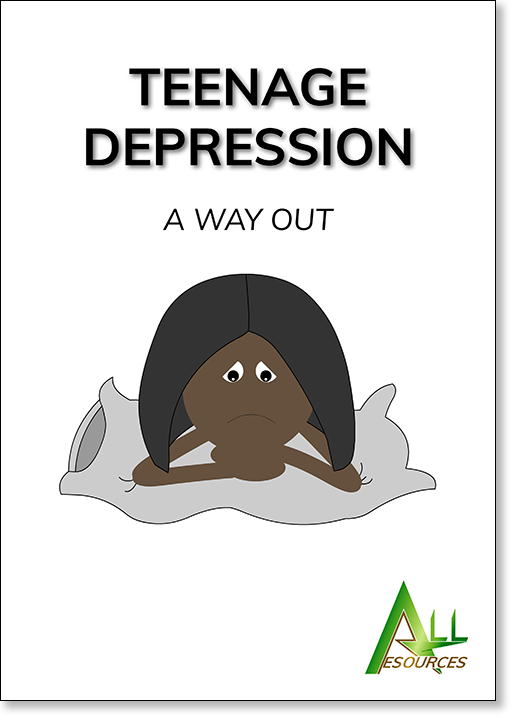
Teenage Depression — A Way Out
Tackles the issue of depression including causes and signs that parents and teachers can look out for.
- Age range: 12 years and upwards
- Category: Schools
- Last revised: 2022
- Pages: 87
- Illustrated throughout
Hard copy: £35.99 add to basket
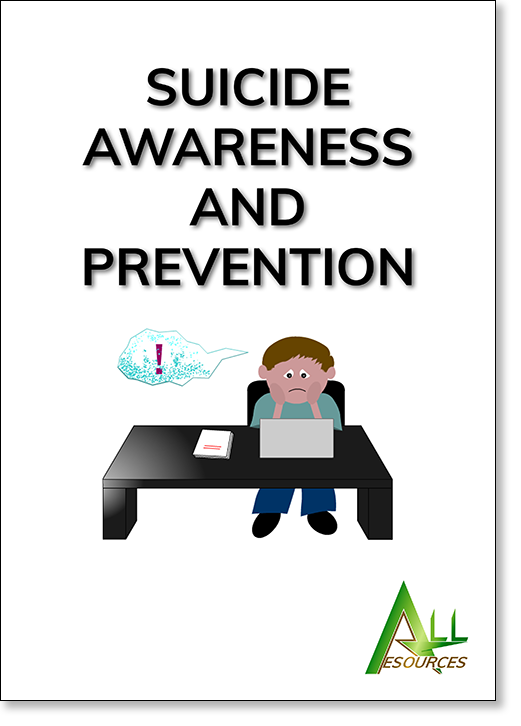
Suicide Awareness and Prevention
Covers suicide from a variety of perspectives, the reasons behind suicide, the groups most at risk and the warning signs.
- Focus: For those interested in suicide prevention and mental health policy
- Category: General
- First published: 2022
- Pages: 61
- Illustrated throughout
Hard copy: £35.99 add to basket
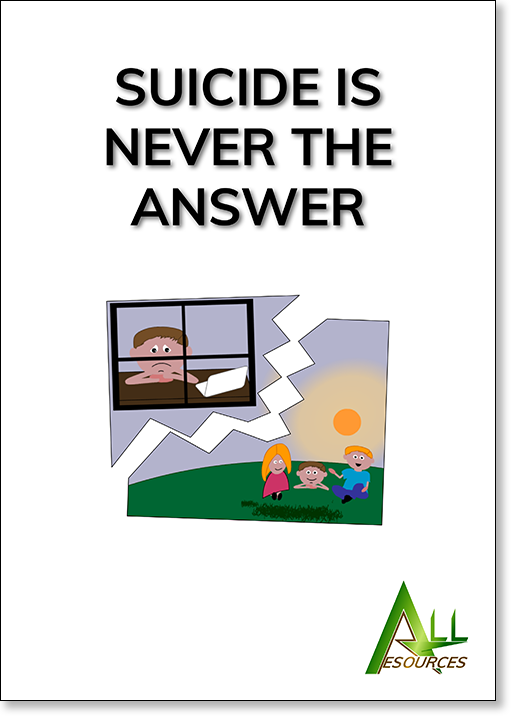
Suicide is Never the Answer
Understand the reasons behind suicidal feelings in young people and recognise the signs to help prevent this tragedy.
- Age range: 12 years and upwards
- Category: Schools
- Last revised: 2022
- Pages: 44
- Illustrated throughout
Hard copy: £25.99 add to basket
Mental Health Lesson Plans
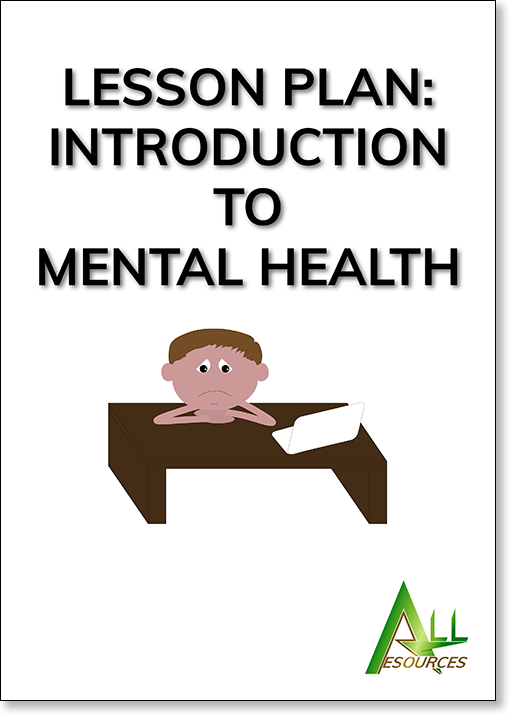
Introduction to Mental Health
This lesson plan introduces the subject of mental health and mental illness.
- Age range: 12 years and upwards
- Category: Lesson plan
- First published: 2022
- Pages: 15
- Duration: 55 mins – 1 hour
Hard copy: £10.99 add to basket
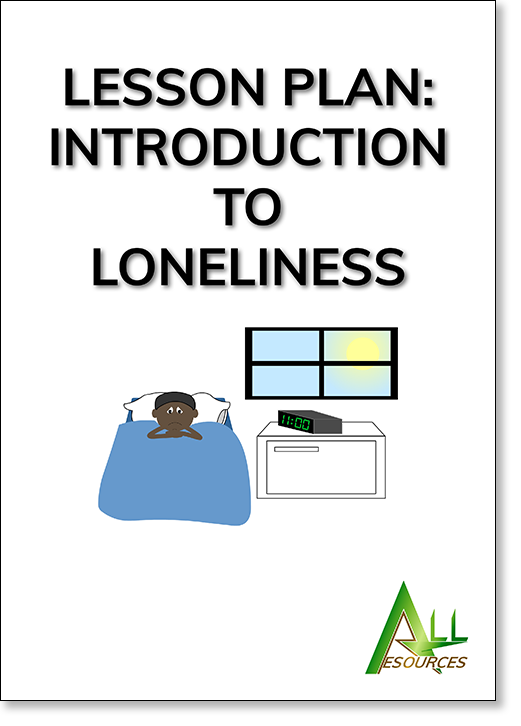
Introduction to Loneliness
An introduction to loneliness and the way it affects our physical and mental health.
- Age range: 12 years and upwards
- Category: Lesson plan
- First published: 2022
- Pages: 15
- Duration: 55 mins – 1 hour
Hard copy: £10.99 add to basket
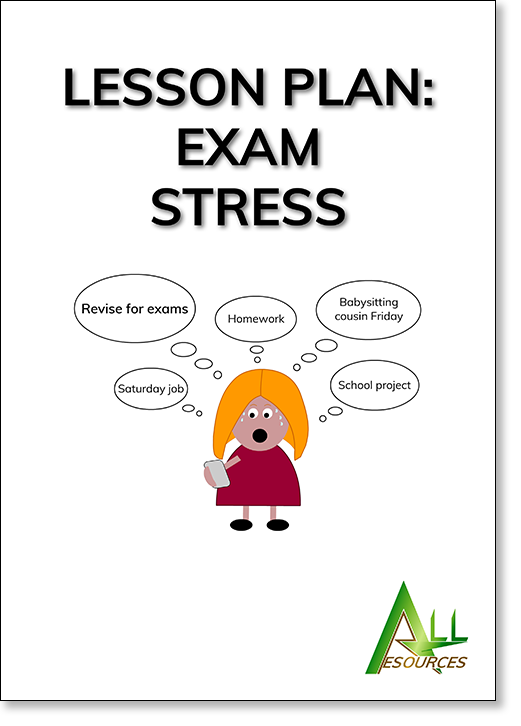
Exam Stress
This lesson plan provides information and advice on dealing with exam stress.
- Age range: 12 years and upwards
- Category: Lesson plan
- First published: 2022
- Pages: 17
- Duration: 55 mins – 1 hour
Hard copy: £10.99 add to basket
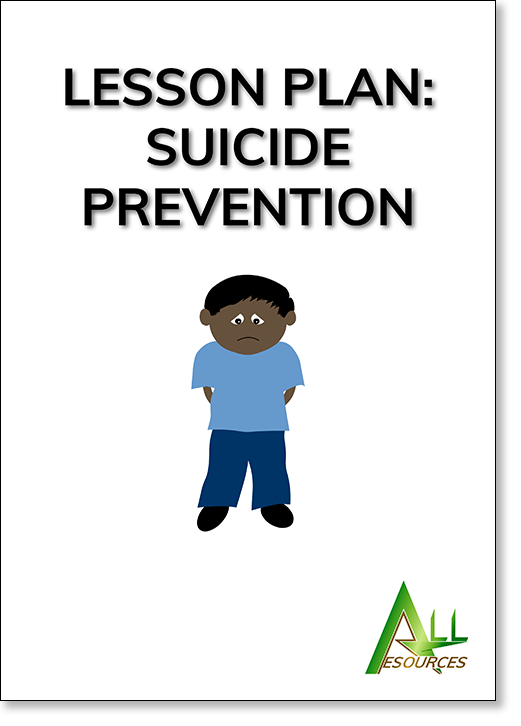
Suicide Prevention
A lesson plan designed to promote suicide awareness and prevention.
- Age range: 12 years and upwards
- Category: Lesson plan
- First published: 2022
- Pages: 21
- Duration: 55 mins – 1 hour
Hard copy: £10.99 add to basket
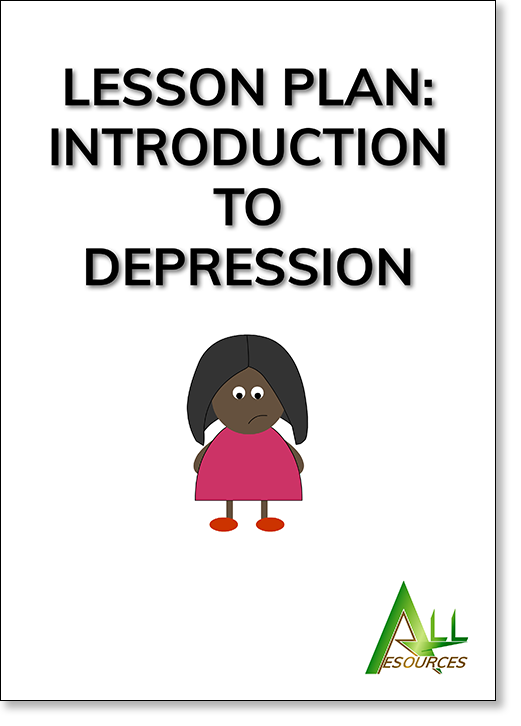
Introduction to Depression
This lesson plan introduces depression and the way it affects us physically and mentally.
- Age range: 12 years and upwards
- Category: Lesson plan
- First published: 2022
- Pages: 14
- Duration: 55 mins – 1 hour
Hard copy: £10.99 add to basket
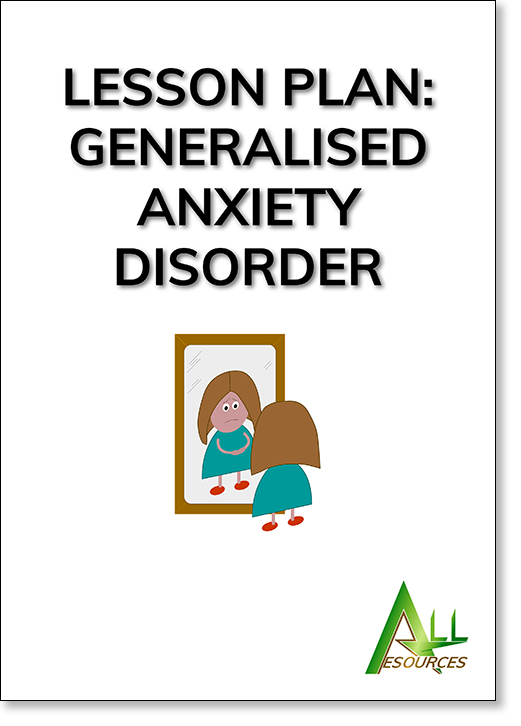
Generalised Anxiety Disorder
A lesson plan examining anxiety and generalised anxiety disorder — a more extreme form of anxiety.
- Age range: 12 years and upwards
- Category: Lesson plan
- First published: 2022
- Pages: 14
- Duration: 55 mins – 1 hour
Hard copy: £10.99 add to basket



